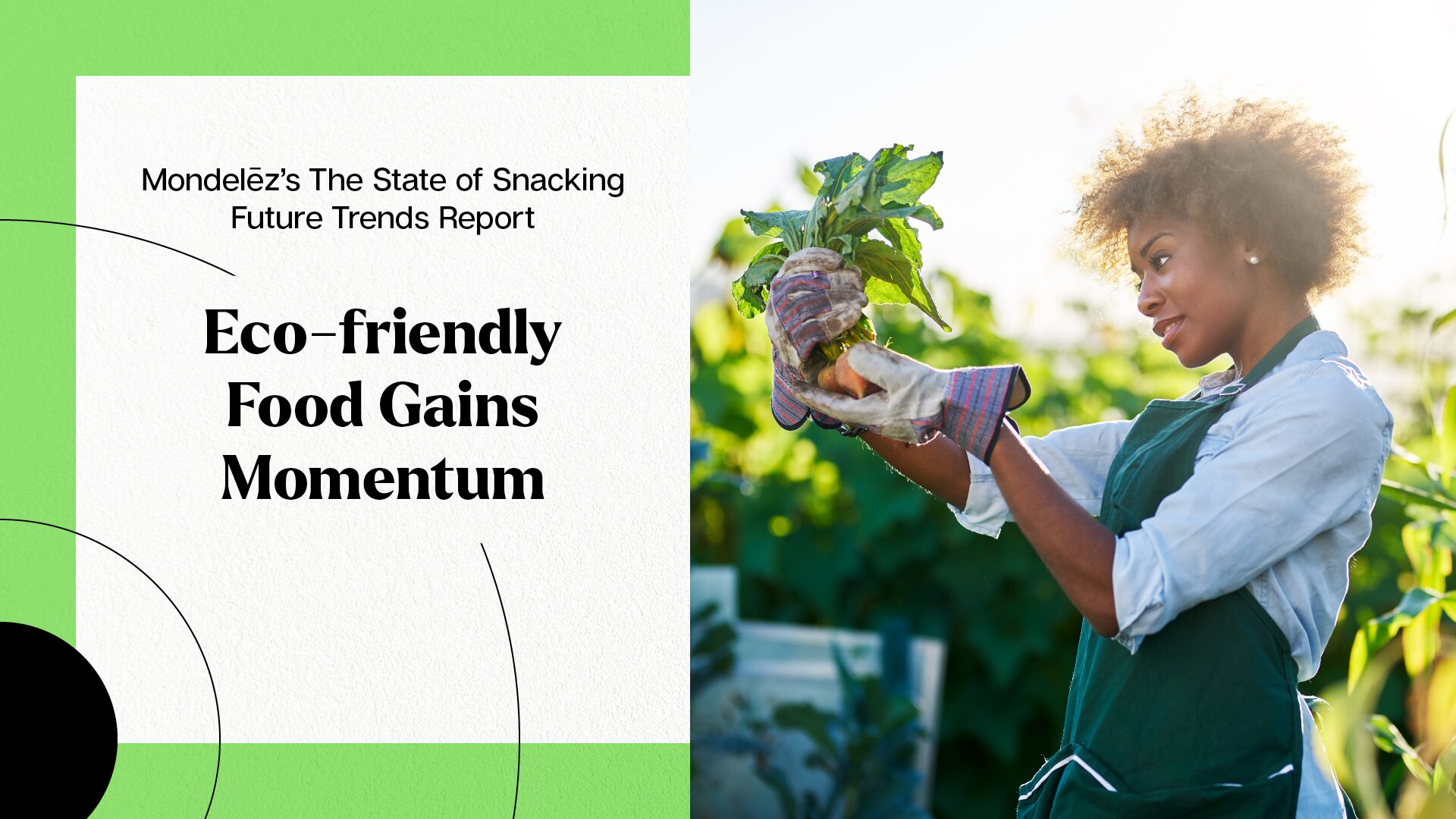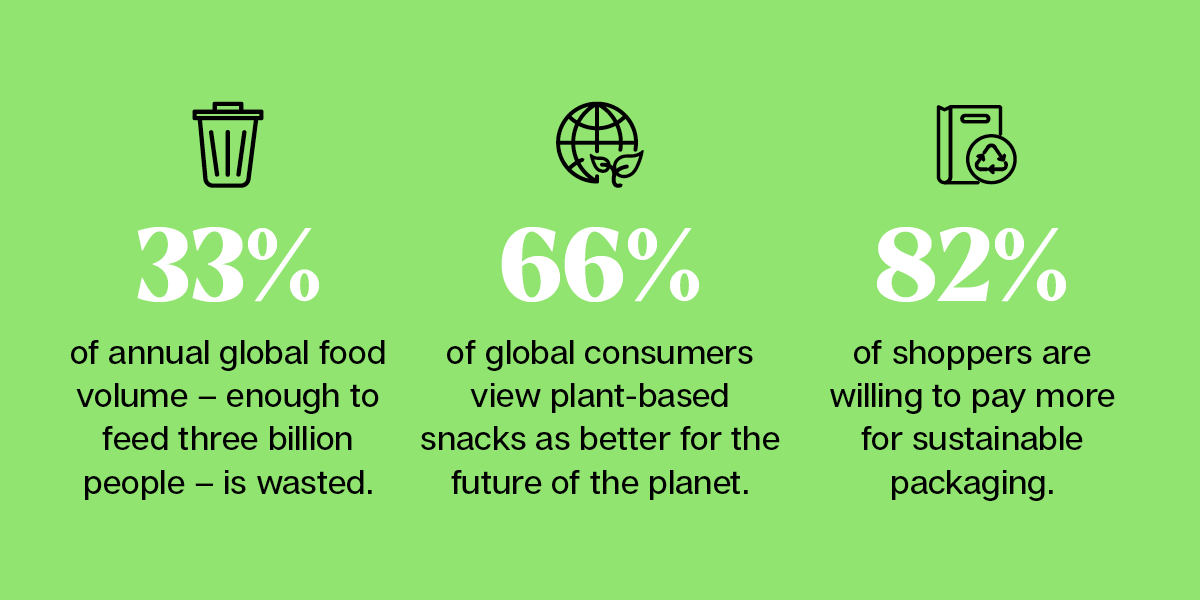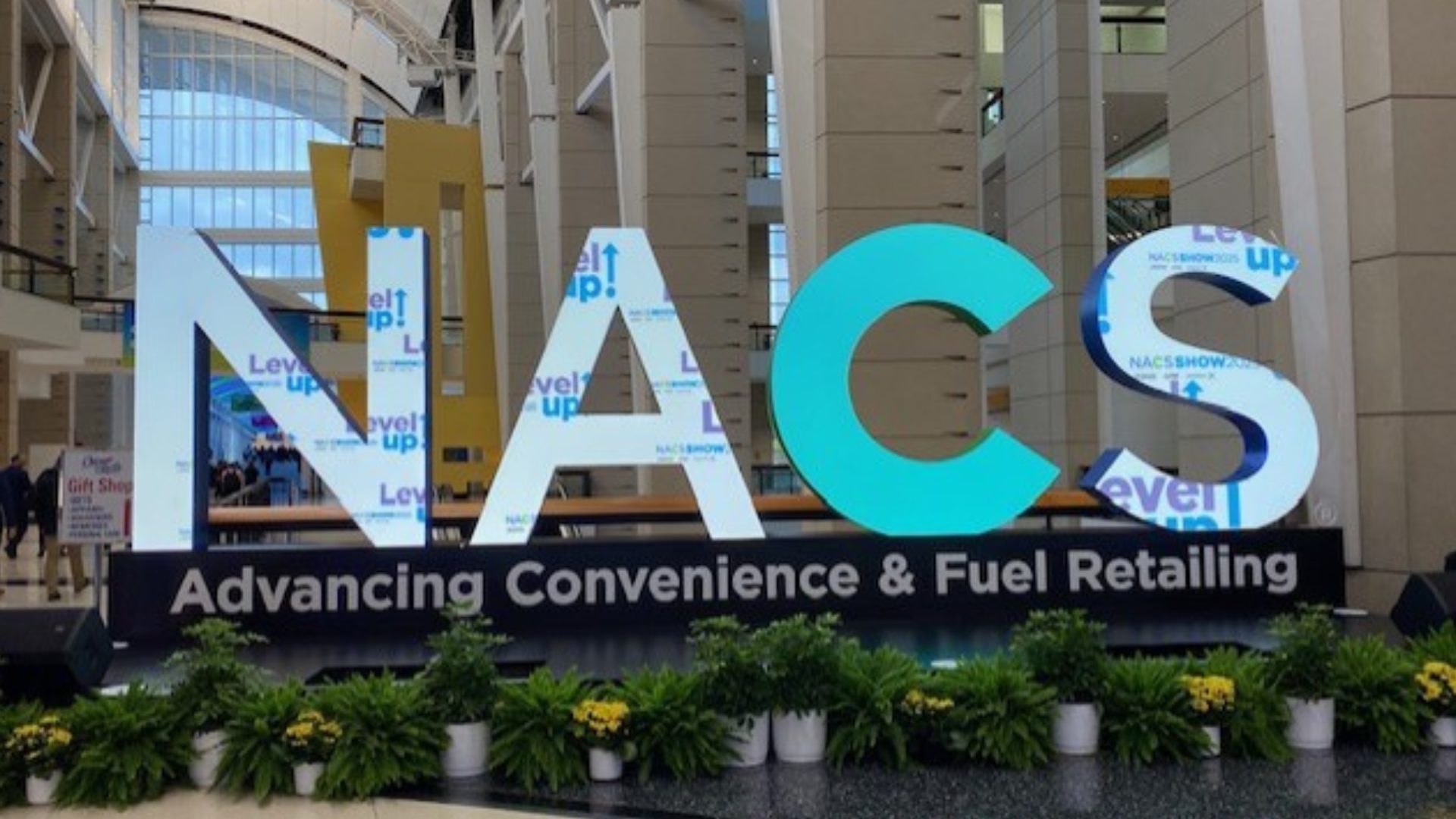It’s apparent at grocery store checkout lines, in social media, and in marketing campaigns: consumers demand sustainable and ethically sourced food more than ever before.
As people grow more concerned about the ecological footprint of their consumption, of food waste, and the welfare of those involved in food’s production process, the industry is undergoing noteworthy change. The increasing discourse on issues like climate change, unethical labor practices, and animal welfare has heightened consumer awareness about what they put in their bodies and why. Among younger generations – particularly Gen Z – there’s a notable anxiety about environmental issues, which has influenced purchasing habits.
Approximately 63% of global consumers now seek snacks that reduce environmental impact, through practices like carbon offsets, local sourcing, and sustainable supply chain optimization. That was a key finding revealed in Mondelēz International’s recent State of Snacking: Future Trends report.
The principles of diversity, equity, and inclusion (DEI) are also gaining traction within the food industry. Movements against discrimination are influencing consumer expectations, and many consumers favor brands that reflect diversity and inclusivity.
Among the report’s other noteworthy findings:
Evolving Production Practices
The agriculture industry is increasingly adopting environmentally friendly practices such as regenerative farming, reduced pesticide use, and water conservation programs. Ethical sourcing efforts are also increasing as companies audit their supply chains for fair labor practices and engage with local communities to promote fair trade.
The emphasis on sustainability and ethics appears likely to reshape the supply chain. Prioritizing transparency will be key for many manufacturers, and technologies like blockchain will play a key role to ensure product journeys are easily trackable.
The surge in plant-based and alternative ingredients is also driven by environmental and ethical considerations. With climate change at the forefront of global concerns – coupled with a growing recognition of the health benefits associated with plant-based diets – many consumers are embracing products like alternative milk and alt-protein.
Prioritizing Waste Reduction
Product packaging is also going green – as awareness of the environmental impact of plastic waste grows, consumers and regulators alike are pushing for more sustainable packaging solutions.
Food companies are setting goals to transition to packaging that’s reusable, recyclable, or compostable, although this shift creates challenges in terms of cost and quality. There’s a growing movement toward reducing waste through upcycling and using resources more efficiently.
Looking ahead to the 2030s, sustainability, ethical sourcing, food waste reduction, and DEI initiatives will continue to shape the food industry. These elements reflect an overall shift toward more conscious consumption as opinionated consumers demand that food companies adapt to meet their evolving preferences.
The Food Institute Podcast
How does one jump from aerospace engineering into plant-based chicken nugget production? That’s exactly the leap that Christie Lagally, CEO & Founder of Rebellyous Foods, took in search of producing a healthier chicken nugget. Learn more about her company’s focus on animal welfare, environmental sustainability, and human health in this episode of The Food Institute Podcast.













